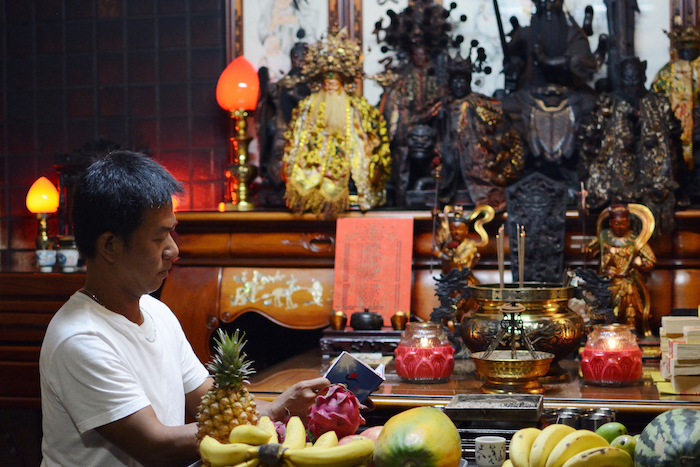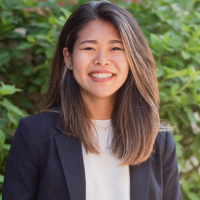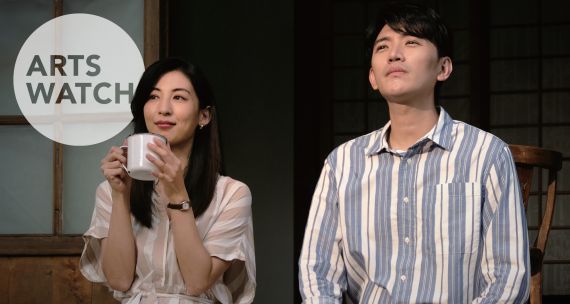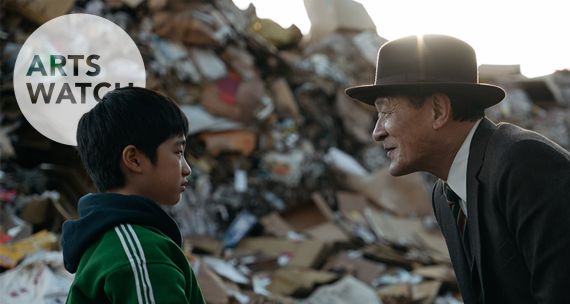Synopsis
A Holy Family (神人之家) follows the story of the Lu family as their estranged son and documentary filmmaker, A-Liang ‘Elvis’ Lu, returns to the family home in rural southwestern Taiwan after 24 years. Equipped with a video camera, A-Liang Lu films the everyday life of his aged but hardworking mother, gambling addict father, and struggling brother, all while uncovering the religious superstitions that have guided the family’s decisions.
Asking the difficult question: “Do the gods exist?”
After receiving a phone call from his mother to discuss future funeral arrangements for the aging couple, A-Liang Lu returns home for the first time in more than two decades. Behind the camera for much of the film, A-Liang captures the raw dynamic of his dysfunctional family, including his aged mother, who diligently cleans a large Taoist shrine early in the morning; his father, who is mainly occupied with ‘seeing’ signs from the gods for winning lottery numbers; and his pseudo psychic brother, who communicates with the gods to help himself and clients with business decisions.

Unlike his deeply religious family, A-Liang seems to be removed and somewhat opposed to the family beliefs, which have time and time again failed to protect them, even asking if the gods have ever helped the family in times of hardship. The brother’s young son is also filmed questioning the gods’ existence when the family tomato farm is flooded despite the plants being sowed on a day the gods ‘signalled.’ But the constant filming and difficult and agitating questions A-Liang asks from behind the camera seem to give him the space to better understand his family.
Slowly, A-Liang begins to appear in front of the lens, once again becoming a member of the Lu family. Through small interactions and short audio snippets of phone calls, their relationships begin to improve, not only between A-Liang and his family members but also between his brother and father, who, in the beginning, never speak to one another despite living under one roof.
Asian love languages 101
For many Asian Canadian audiences, the small nuances of tradition, religion, and culture may conjure memories from childhood. That may be especially the case for understanding expressions of familial love, which is often not directly communicated, either physically or verbally, in Asia. For example, during a photoshoot, A-Liang’s mother refuses to hold the hand of her husband and A-Liang, but the audience can also see her attending to her husband during times of sickness. In North America, these subtleties can be observed in second-generation memes on social media, in which parents are shown cutting up fruit for their children as a sign of love to them.
But the awkward family relations and differences in religious and/or intergenerational beliefs are something many families in Canada can relate to. This raw and beautiful documentary on family and reconciliation is a must-see for all those interested in the everyday depictions of Taiwanese culture and family.
About the Vancouver Taiwanese Film Festival
The Vancouver Taiwanese Film Festival (TWFF) is an annual non-profit art and culture initiative started in 2007. It has been well-received by Metro Vancouver audiences over the years and has become the largest film festival focusing on Taiwanese cinema in North America.
Over the past 16 years, TWFF has presented more than 100 Taiwanese films and invited many filmmakers and directors to Vancouver, supporting multiculturalism in Canada and building a bridge connecting the art of Taiwanese film with Canadian audiences.
APF Canada was provided complimentary review tickets for TWFF in support of the Foundation’s mission to promote mutual awareness and understanding of Asian cultures.





